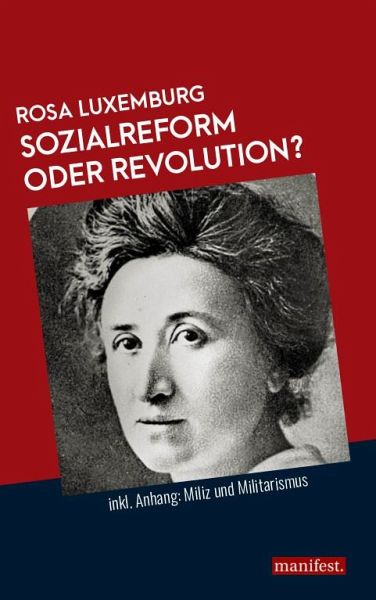Ben E P reseñó Reform or Revolution de Rosa Luxemburg
Review of 'Reform or revolution' on 'GoodReads'
5 estrellas
Up there with The State and Revolution by Lenin as a pretty masterful refutation of opportunist (and what we might call today "radlib") attempts to co-opt the socialist project and Marxist theory specifically.
The ideas in this pamphlet are as important today as they were in Luxemburg's for clarifying intent and defending the movement from distractions that masquerade as critical additions or edits to certain fundamental ideas in the Marxist traditio.
For example, Luxemburg writes of Bernstein (the opportunist who is the focus of Reform or Revolution, just as Kautsky was for Lenin's State and Revolution):
"To him, ‘capitalist’ is not an economic unit but a fiscal unit. And ‘capital’ is for him not a factor of production but simply a certain quantity of money.
Here too, the theoretic base of his economic error is his “popularisation” of socialism. For this is what he does. By transporting the concept of …
Up there with The State and Revolution by Lenin as a pretty masterful refutation of opportunist (and what we might call today "radlib") attempts to co-opt the socialist project and Marxist theory specifically.
The ideas in this pamphlet are as important today as they were in Luxemburg's for clarifying intent and defending the movement from distractions that masquerade as critical additions or edits to certain fundamental ideas in the Marxist traditio.
For example, Luxemburg writes of Bernstein (the opportunist who is the focus of Reform or Revolution, just as Kautsky was for Lenin's State and Revolution):
"To him, ‘capitalist’ is not an economic unit but a fiscal unit. And ‘capital’ is for him not a factor of production but simply a certain quantity of money.
Here too, the theoretic base of his economic error is his “popularisation” of socialism. For this is what he does. By transporting the concept of capitalism from its productive relations to property relations, and by speaking of simple individuals instead of speaking of entrepreneurs, he moves the question of socialism from the domain of production into the domain of relations of fortune – that is, from the relation between Capital and Labour to the relation between poor and rich.”
This reminds me of leftist subculture among folks on Twitter, Instagram, etc, who think "capitalists" are anyone who makes $5k more than them per year, and are unable to frame their analysis in a way that encourages any specific action that might work towards the communism ("socialism," "anarchism," et al) they claim to desire for the nation and the world.
Luxemburg also writes about co-ops and unions, methods by which some non-Marxists purport to "build a new world in the shell of the old," that “The workers forming a co-operative in the field of production are thus faced with the contradictory necessity of governing themselves with the utmost absolutism. They are obliged to take toward themselves the role of capitalist entrepreneur – a contradiction that accounts for the usual failure of production co-operatives which either become pure capitalist enterprises or, if the workers’ interests continue to predominate, end by dissolving.”
In other words, just like an amount of monetary income or savings doesn’t automatically reveal class distinctions, changing the “capitalist mode of distribution” does not challenge the “capitalist mode of production” or capitalism writ large.
While these concepts may be more conceptually complex than common leftist slogans, Luxemburg's analysis can be understood through her explanations, which are reinforced by repetition (though not ad nauseum).
If I had to sum up the book in one quote, it might be "And no law in the world can give to the proletariat the means of production while it remains in the framework of bourgeois society, for not laws but economic development have torn the means of production from the producers’ possession." Anyone familiar with the slightly more well-known leftist Lucy Parsons will recognize an analog between this statement and “Never be deceived that the rich will allow you to vote away their wealth.” But while anarchists will engage with this side of the equation (reform), they tend to withold criticism of the other (revolution). Luxemburg doesn't shy away from this.
Her goal is not just to repel opportunists who would seek to "work within the system," but also to disabuse folks of the idea that a "new world" can be built as a dual power challenge to the existing order at any given moment in any given place. Instead, she gives a nuanced analysis of quotes by Engels and Marx taken out of context by Bernstein for his own purposes, pointing out how one quote by Engels about "abandoning the barricades" was referencing contemporary, daily struggle under capitalism, and how a quote by Marx about "buying the estates of the landlords" was invoked as a theory for a post-revolution dictatorship of the proletariat.
In other words, she couches their quotes within the context of their theory, rather than attacking or using their words to her own ends. Reform or Revolution is, really, about reform and revolution--how the former can and should be used, but only in service to the latter.

